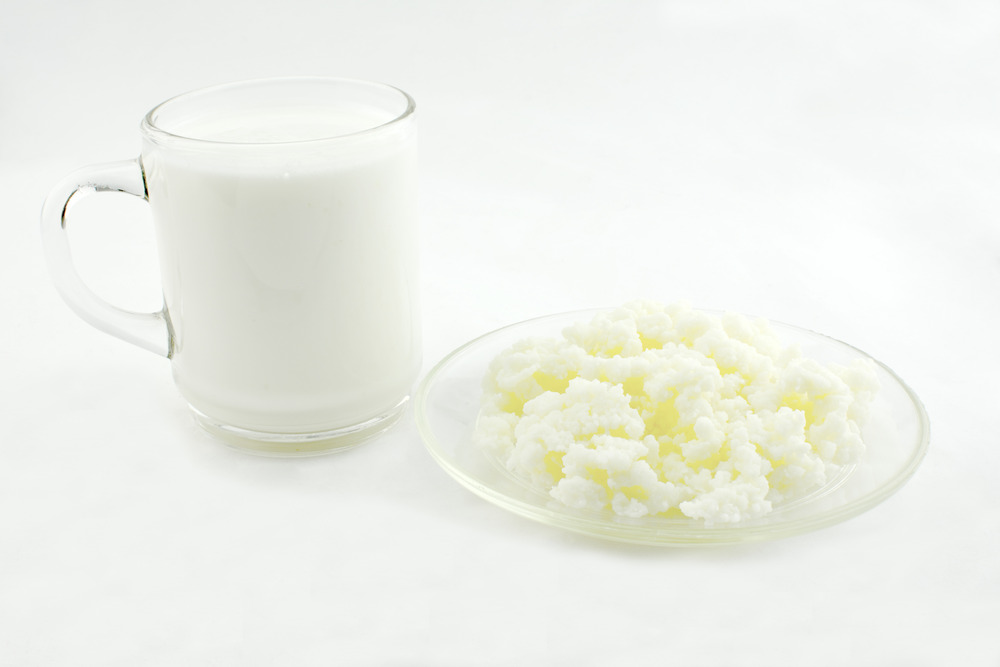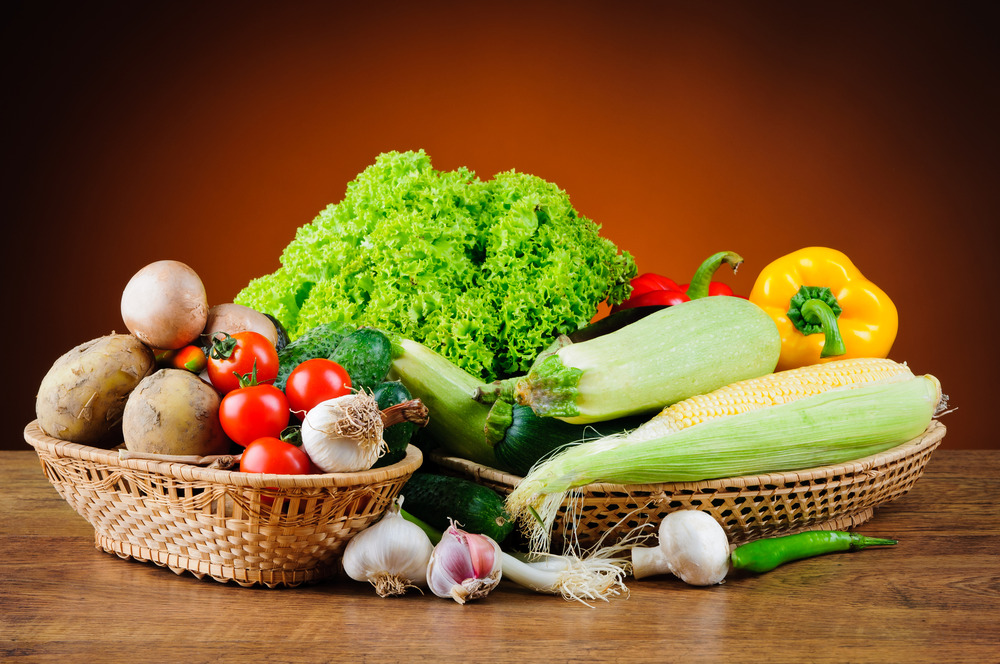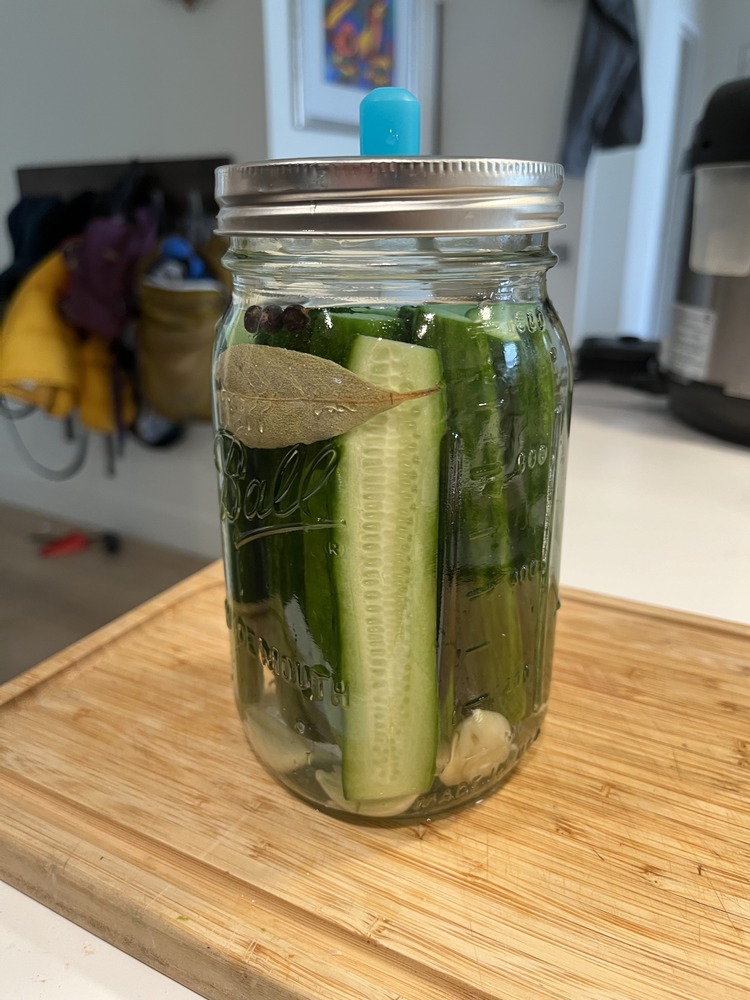Our bodies host a vast ecosystem of bacteria, viruses, and fungi, collectively known as the microbiome. This complex network, primarily found in our gut, plays a crucial role in digesting food, regulating the immune system, and even impacting our mood and mental health.
As a Doctor of Acupuncture and practitioner of Chinese medicine, I’ve observed firsthand the profound impact that diet, incorporating more fiber and fermented foods, can impact the microbiome and overall health. An emerging body of research corroborates this, highlighting the significant benefits of fermented foods in nurturing our microbiome, offering a delicious approach to bolstering gut health and wellbeing.
This blog post delves into how fermented foods can be a key ally in enhancing the diversity and functionality of our microbiome, while also discussing safe ways for everyone, including those with sensitive digestive systems, to incorporate these powerful foods into their diet.
What is the Microbiome?
The human microbiome is a community of microorganisms residing in and on our bodies, with the highest concentration found in the gut, but also found on our skin, and in the vagina. These microbial inhabitants are not mere passengers; they’re instrumental in our health, helping to break down food, synthesize essential nutrients, protect against pathogens, and regulate the immune system.
A balanced microbiome is linked to numerous health benefits, including a reduced risk of chronic diseases, improved digestion, and even a lower likelihood of experiencing mood disorders.

The Fermentation Process
Fermentation is a process as ancient as civilization itself, deeply embedded in the fabric of our culinary history. It’s a natural metabolic process where microorganisms like yeast and bacteria convert sugars and starches into alcohol or acids. This transformation not only preserves the food, but also enhances its nutritional value, flavor, and digestibility.
Humans have harnessed fermentation for thousands of years to make bread, cheese, yogurt, sauerkraut, wine, and beer, among other foods and beverages. The science behind it is straightforward: by creating conditions favorable for specific microorganisms to thrive, these tiny chefs work to transform the substrate—be it milk, cucumbers, cabbage, or grapes—into a completely new product.
The art of fermentation lies in the skillful manipulation of variables such as temperature, time, and salt concentration to encourage the growth of desirable microbes while inhibiting harmful ones. This balance ensures not only the safety of the fermented product but also its unique taste and health benefits.
Globally, each region boasts its own signature fermented delicacies. From the tangy crunch of Korean kimchi to the creamy depth of Greek yogurt or Kefir and the refreshing zing of kombucha, fermented foods enrich our diets with flavors and traditions from around the world.
The process of fermentation can increase the bioavailability of nutrients, making them easier for our bodies to absorb. Additionally, many fermented foods are rich in probiotics—beneficial bacteria that play a crucial role in maintaining gut health, supporting digestion, and enhancing immune function.
Benefits of Fermented Foods to the Microbiome
Increase in Beneficial Bacteria
Fermented foods are rich in probiotics, beneficial bacteria that can colonize the gut and contribute to a healthier microbiome. Studies show that regular consumption of fermented foods increases the abundance of health-promoting gut bacteria.(1) This diversification of the gut flora is associated with improved gastrointestinal health, enhanced metabolic processes, and a stronger immune system.
Improved Digestion and Nutrient Absorption
The probiotics in fermented foods can help break down nutrients into more digestible forms, facilitating better absorption. Studies show that fermentation can increase the bioavailability of minerals such as iron, zinc, and calcium, making these essential nutrients more accessible to the body. (2) Furthermore, the fermentation process often breaks down compounds that can cause digestive discomfort, such as lactose in dairy.
Enhanced Immune Function
A healthy microbiome plays a critical role in the body’s immune response. Probiotics from fermented foods can enhance the intestinal barrier, preventing pathogens from entering the bloodstream. (3) They also modulate the immune system, reducing the risk of infections and certain autoimmune diseases.
Short-Chain Fatty Acids (SCFAs)
Short-chain fatty acids (SCFAs), such as acetate, propionate, and butyrate, are produced when the beneficial bacteria in the gut ferment fiber from our diet, and they play a crucial role in gut health and overall well-being. SCFA’s have been shown to help in enhanced gut health and barrier function, overall improvement of the digestive system, immune system modulation, as well as metabolic health benefits.
The best way to maximize the production of beneficial SCFAs is to include a variety of both fermented foods and fiber-rich foods in your diet.

Benefits of Fermented Foods
A pivotal study has cast new light on the distinct impacts of high-fiber and high-fermented food diets on the gut microbiome and immune system. (3)
The research showed that diets high in fermented foods not only increased microbiota diversity but also showed a marked decrease in markers of inflammation. However, high-fiber diets did not significantly increase the diversity of the microbiota. Yet they did shift the microbiota’s carbohydrate processing capacity.
Both of these choices are good and essential. Eating fermented foods helps to increase microbiota diversity and enhanced immune function which is a potential to reduce inflammation-related diseases. On the other hand, the shift in carbohydrate processing capacity with high-fiber diets underscores the importance of fiber in metabolic health and disease prevention.
Incorporating Fermented Foods into Your Diet
Incorporating fermented foods into your daily diet is a delicious journey of discovery and taste, offering a spectrum of flavors and health benefits. From tangy vegetable ferments to creamy dairy delights and effervescent kombucha, the world of fermented foods is vast and varied. Here’s how to explore and enjoy the rich diversity of fermented products:
Vegetable Fermentation

Fermented vegetables, such as sauerkraut, kimchi, and pickles, are not only crunchy, tangy, and full of flavor but also packed with probiotics. These are easy to make at home or available in stores—just make sure to choose versions labeled “live cultured” to ensure probiotic benefits.
Start by adding a small serving of sauerkraut to your sandwiches or salads with a pickle on the side. Or incorporate kimchi into rice dishes, soups, and stews for a spicy kick.
Dairy-Based Fermentation
Dairy fermentations like yogurt, kefir, and other yogurt drinks are excellent sources of probiotics, calcium, and vitamins. Yogurt can be enjoyed on its own, mixed with fruits and nuts for a hearty breakfast, or used as a base for smoothies. Kefir, with its drinkable consistency, slightly sour taste, and high levels of probiotics makes it a refreshing and super healthy beverage. There are many other dairy fermentation options available such as villi, matsoni, or piima.
Kefir and greek yogurt are currently my favorite to make. The benefits of dairy fermentation is that it consumes the lactose for those who are lactose intolerant and also denatures the proteins to make them more suitable for those with acne.
Kombucha
Kombucha is a fermented tea beverage known for its tangy taste and effervescence. Rich in probiotics and antioxidants, it’s a fantastic alternative to sugary sodas. Kombucha comes in a wide range of flavors, from classic tea to fruit-infused varieties, making it easy to find one you enjoy. Introducing kombucha into your diet can be as simple as replacing your afternoon soda or juice with this healthier option. Start with small quantities to see how your body adjusts to the added probiotics.
Tips for Incorporating Fermented Foods
For those with sensitive digestive systems or conditions like Irritable Bowel Syndrome (IBS), Small Intestinal Bacterial Overgrowth (SIBO), or others, diving headfirst into the world of fermented delights may require a bit more caution. I would also recommend getting acupuncture to improve your microbiome.
But also here are some recommendations so you can safely incorporate fermented foods into your diet, with particular attention to those with digestive issues:
Start Slowly
Introduce fermented foods into your diet gradually. Begin with small servings, such as a tablespoon of sauerkraut or a few sips of yogurt, and observe how your body responds. Gradually increase the amount over weeks or months, allowing your digestive system to adjust without overwhelming it. Remember to go slowly, it is not a race.
Options like lacto-fermented pickles and homemade yogurt can be easier on the gut. Start with these.
Find the one that you like
Not everyone likes every single fermented food. Find the ones you like.
If you are avoiding dairy products there are many good coconut based fermented yogurts.
Monitor Your Body’s Response
Pay close attention to how your body reacts after consuming fermented foods. If you experience increased bloating, gas, or other uncomfortable symptoms, reduce the quantity or frequency.
Homemade vs. Store-Bought
Consider making your own fermented vegetables, kefir, or yogurt at home. It’s a simple process that can be more economical and allows you to control the ingredients, ensuring there are no unwanted additives.
Read Labels Carefully
When shopping for fermented products, look for items that contain live cultures and are free from high levels of added sugars or preservatives.
Consult with a Healthcare Professional
Before making significant changes to your diet, especially if you have existing digestive issues, consult with a healthcare professional.
Microbiome Power!
The symbiotic relationship between humans and the microorganisms that comprise our microbiome is a cornerstone of health, affecting everything from digestion and nutrient absorption to immune function and even mental health.
A growing body of research underscores the unique benefits of fermented foods, from increasing beneficial bacteria in our gut to enhancing immune function and reducing inflammation.
It is clear that a diet rich in fermented foods, along with fiber and mindful of individual digestive needs, can be a powerful tool in maintaining and enhancing health. By embracing these ancient traditions and incorporating them into our modern lives, we can take proactive steps toward healthier, more balanced lives.
References
- Wastyk HC, Fragiadakis GK, Perelman D, Dahan D, Merrill BD, Yu FB, Topf M, Gonzalez CG, Van Treuren W, Han S, Robinson JL, Elias JE, Sonnenburg ED, Gardner CD, Sonnenburg JL. Gut Microbiota-Targeted Diets Modulate Human Immune Status. Cell. 2021 Aug 5;184(16):4137-4153.e14.
- Leeuwendaal NK, Stanton C, O’Toole PW, Beresford TP. Fermented Foods, Health and the Gut Microbiome. Nutrients. 2022 Apr;14(7):1527. Published online 2022 Apr 6. doi: 10.3390/nu14071527. PMCID: PMC9003261. PMID: 35406140.
- Zheng Y, Zhang Z, Tang P, Wu Y, Zhang A, Li D, Wang C-Z, Wan J-Y, Yao H, Yuan C-S. Probiotics fortify intestinal barrier function: a systematic review and meta-analysis of randomized trials. Front Immunol. 2023 Apr 24;14:1143548. doi: 10.3389/fimmu.2023.1143548. eCollection 2023. PMID: 37168869; PMCID: PMC10165082.



